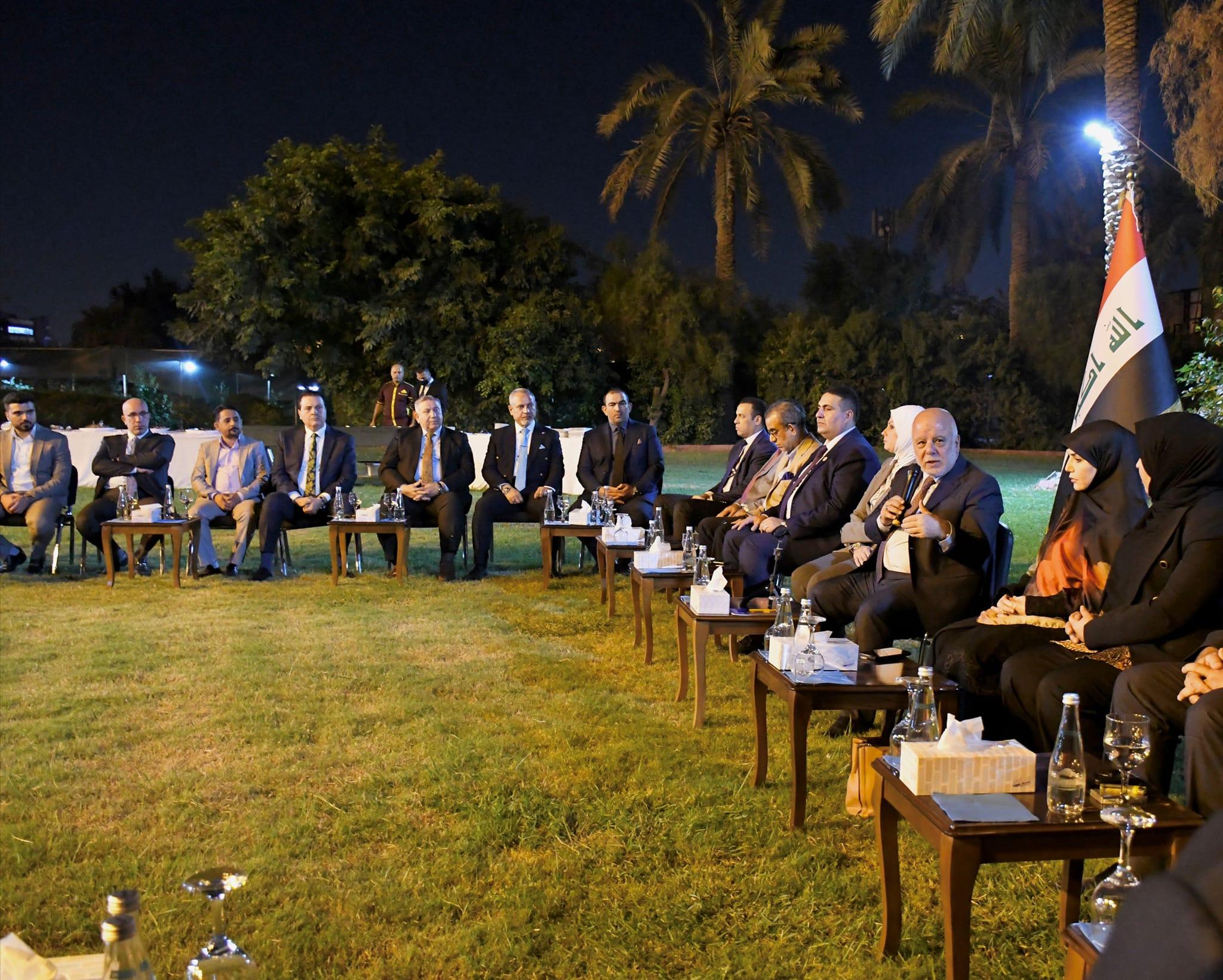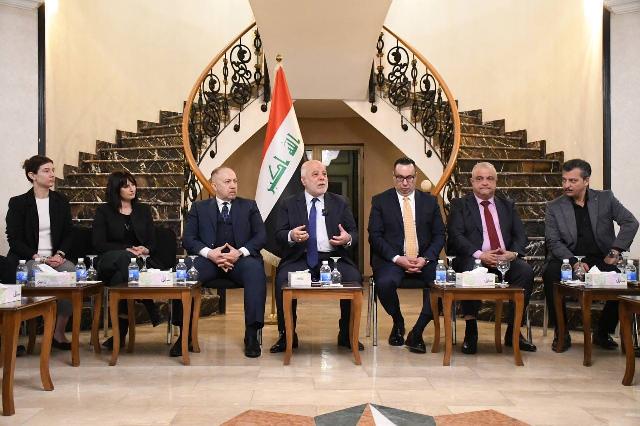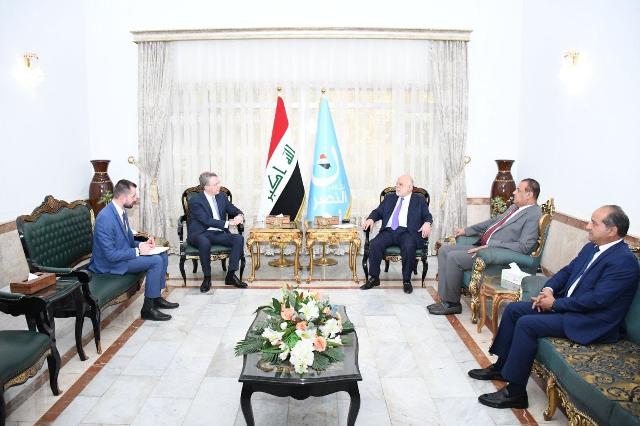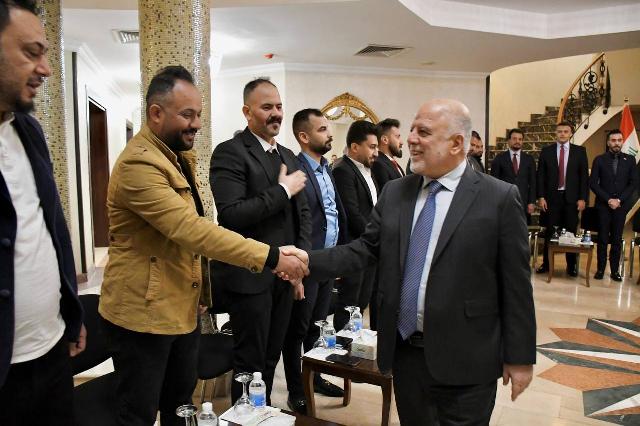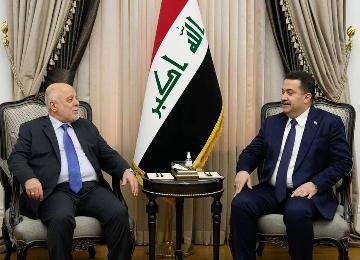Today, Wednesday, the head of Al Nasr Coalition, Dr. Haider al-Abadi, hosted a number of academics and political analysts in his office in Baghdad, and discussed with them the country’s issues and finding the appropriate solutions for them.
Dr. Al-Abadi pointed to the importance of implementing permanent reforms that would create a sustainable economic renaissance, preventing Iraq from falling into crises that negatively reflect on the reality of citizens, in light of expectations about a decline in global oil prices, warning against continued reliance on oil as an economic source for the country.
Dr. Al-Abadi also touched on the necessity of subjecting weapons to state control, and maintaining the security stability prevailing today, stressing that the state is responsible for all citizens, not for one group.
Dr. Al-Abadi explained during his speech that trying to please the public temporarily in order to exploit their votes rather than serve them is nothing but projects that will create major problems in the future.
Regarding the electoral issue, Al-Abadi warned of the continued decline in participation in the elections, saying: "We do not see a correct solution on a permanent level to this problem, and I fear for democracy and elections due to unsound foundations, such as political closure and the possibility of a security collapse as a result of a conflict of political interests".
The attendees asked questions and made interventions that expressed their interest and concerns about many issues in public affairs, including water scarcity, border crossings, and citizens’ reluctance and lack of conviction to participate in the elections".
The political action required to be achieved by the political class on the one hand, and what is required to educate citizens on the other hand, was also discussed.


